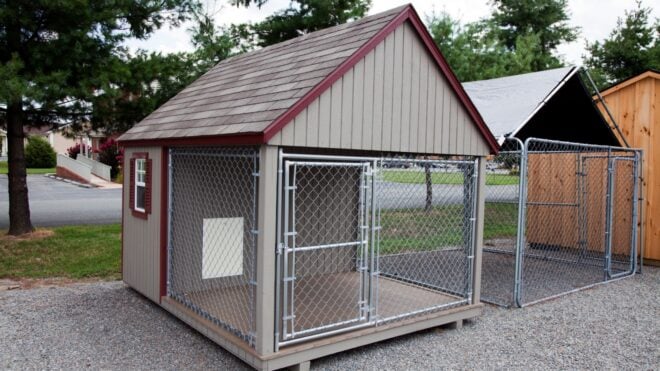Since 2005, one in three properties in Detroit have foreclosed. This means that countless houses stand empty, abandoned, and falling apart.
It's a depressing, blighted scene, but where there's decay, there's also rebirth — even if it's temporary.
One of these abandoned houses in Detroit became the center of a weekend-long art and flower festival, as florists from across the state and country gathered to completely fill the forgotten house with flowers.
The flowers, all grown in the U.S., were on display for visitors to stop and admire, and from October 16 to October 18, more than 3,000 people stopped in to, well, smell the flowers.
But it wasn't just about creating a floral wonderland and sharing it with the public. Flower House, as it came to be known, was also a way to open up a dialogue with the public about how to repurpose the city's decaying buildings and turn them into places that can once again serve the community.
While looks might seem superficial, the appearance of a place, be it a home or a city, makes a huge impact on the people who live there. Just like residents' spirits were lifted when a women's homeless shelter was given a beautiful makeover, this temporary display was uplifting in its own way.
Check out Flower House and see what flowers and teamwork can to do transform an old, run-down house!
(H/T: Lost At E Minor)
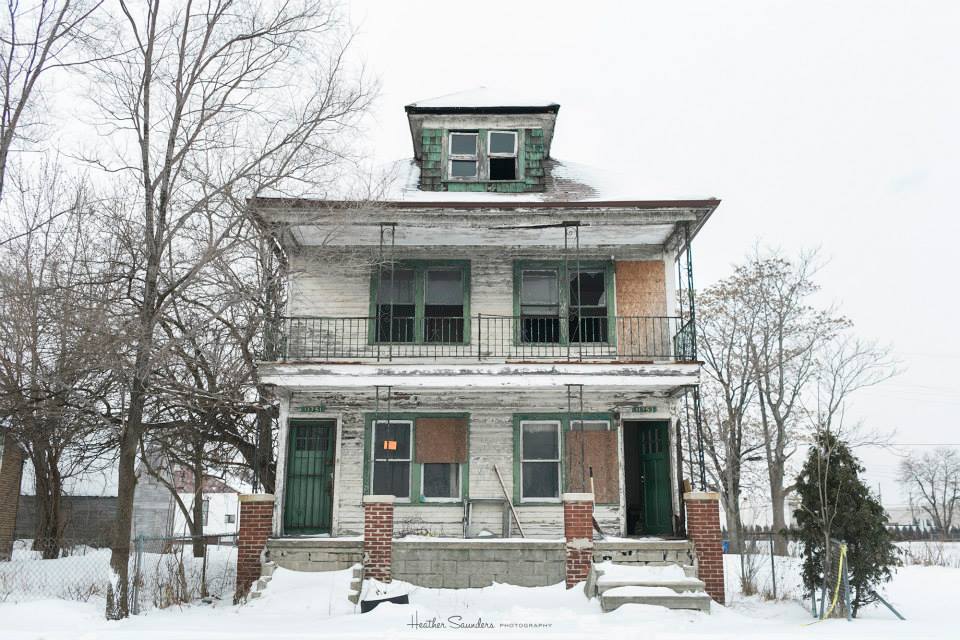
This was Flower House before the flowers. It's a lovely old house, but sadly, it had been abandoned for some time and was falling into disrepair.
Sadly, about a third of the homes in Detroit have met this fate due to foreclosures. It's a sad way to see a neighborhood go.
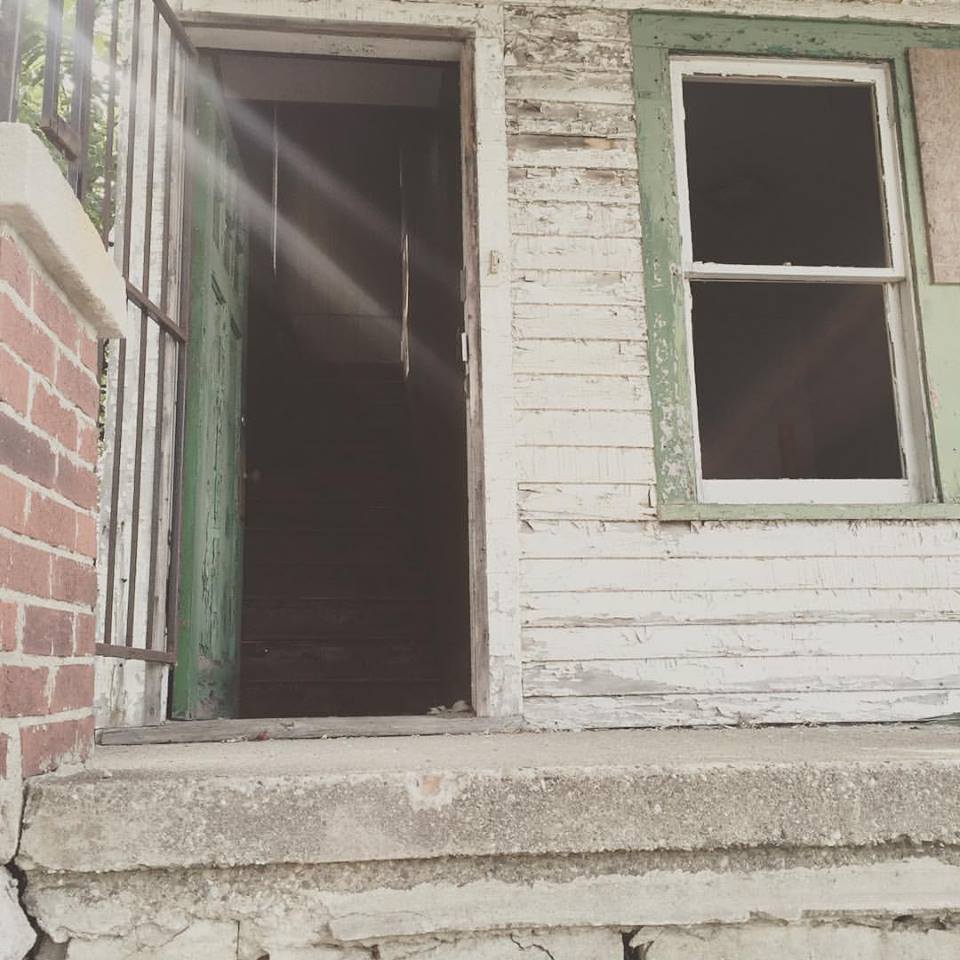
It wasn't the most welcoming, but the team of florists and floral designers behind Flower House saw its potential.
They began planning in May 2015, and through the summer and early fall, they worked to bring in flowers and arrange them around the house in a living display.
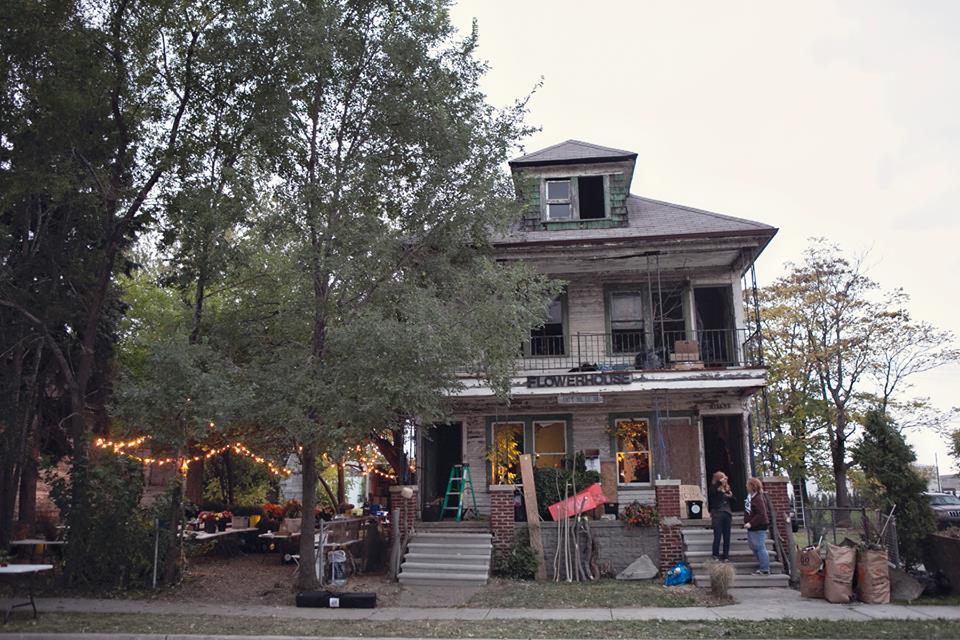
From October 16 through October 18, Flower House opened its doors to the public and drew some 3,000 visitors. Some were florists and flower enthusiasts, and some were just curious!
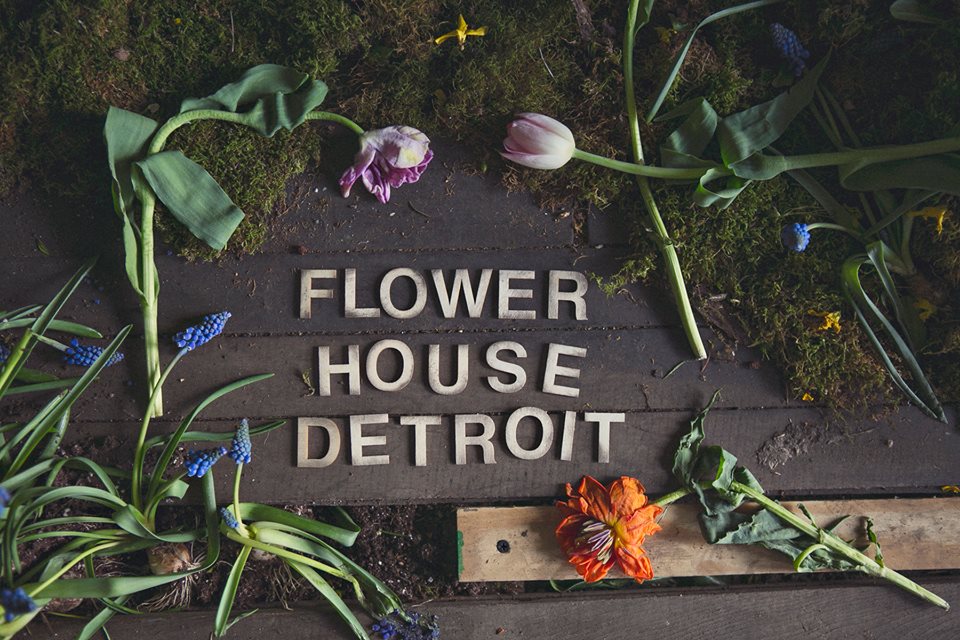
The purpose behind Flower House was manifold.
The organizers wanted to celebrate and connect with florists from around the country, and they wanted to support American flower farms.
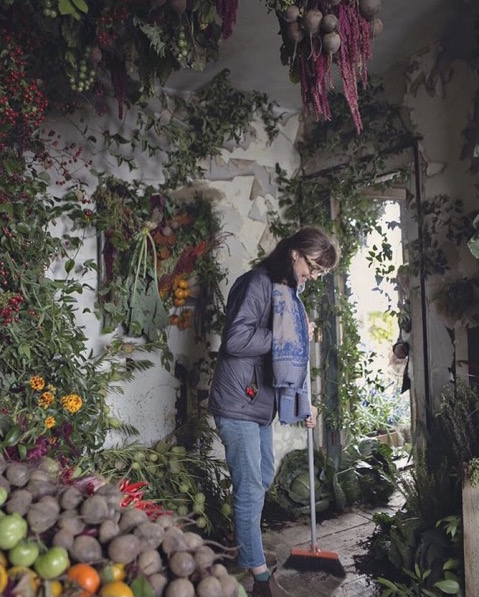
The florists and designers gathered to plan and set up the installation, which saw flowers and plants arranged all over the house.
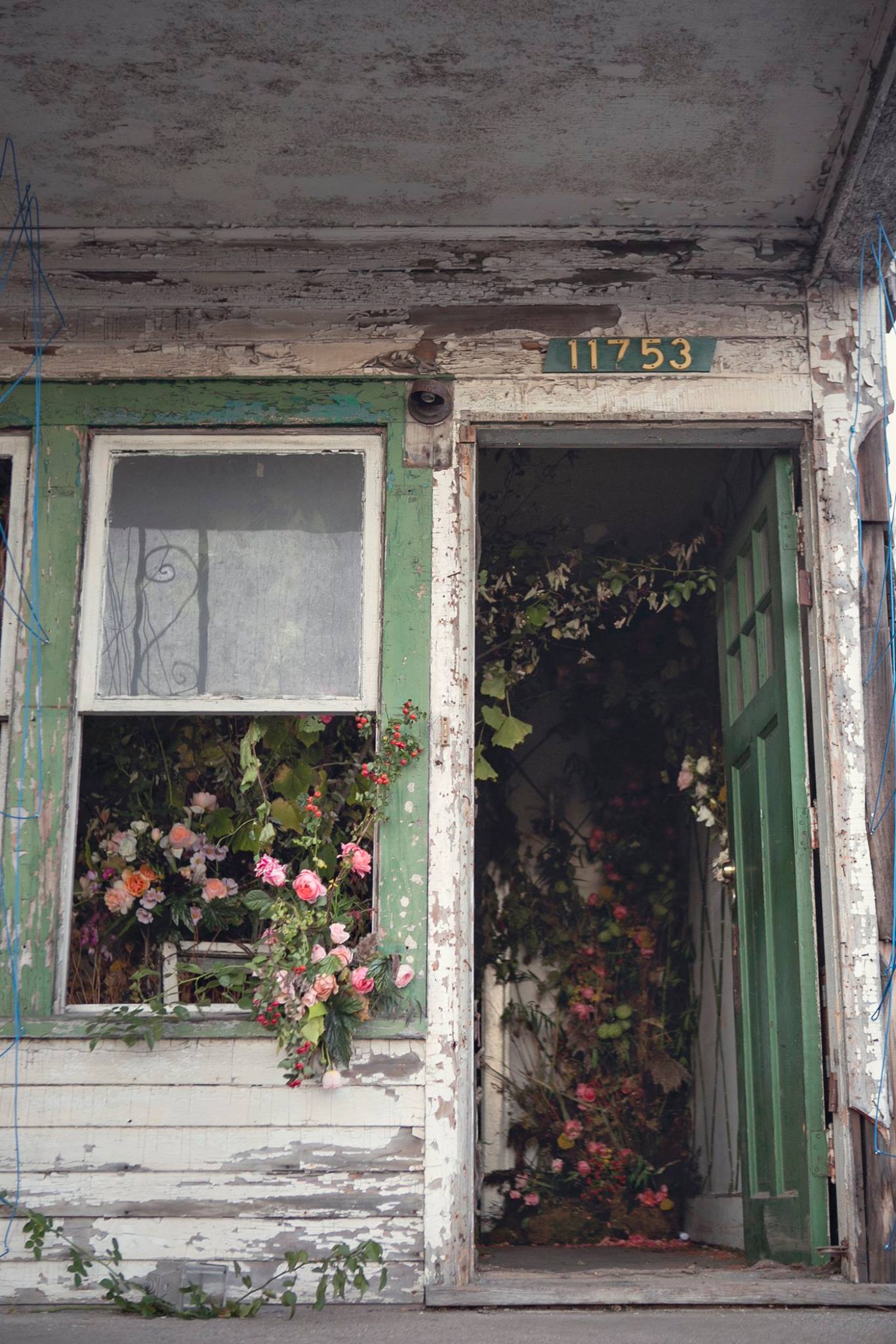
The project also wanted to provide an event for the people of Detroit, and show that even for just a weekend, new life can be brought to these forgotten buildings.
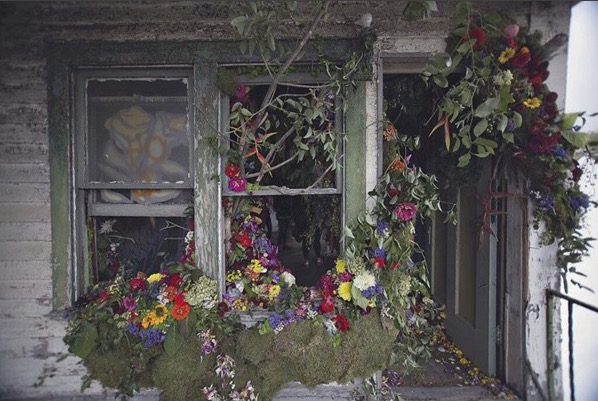
With just a few flowery splashes, the empty home already began to look more inviting and warm.
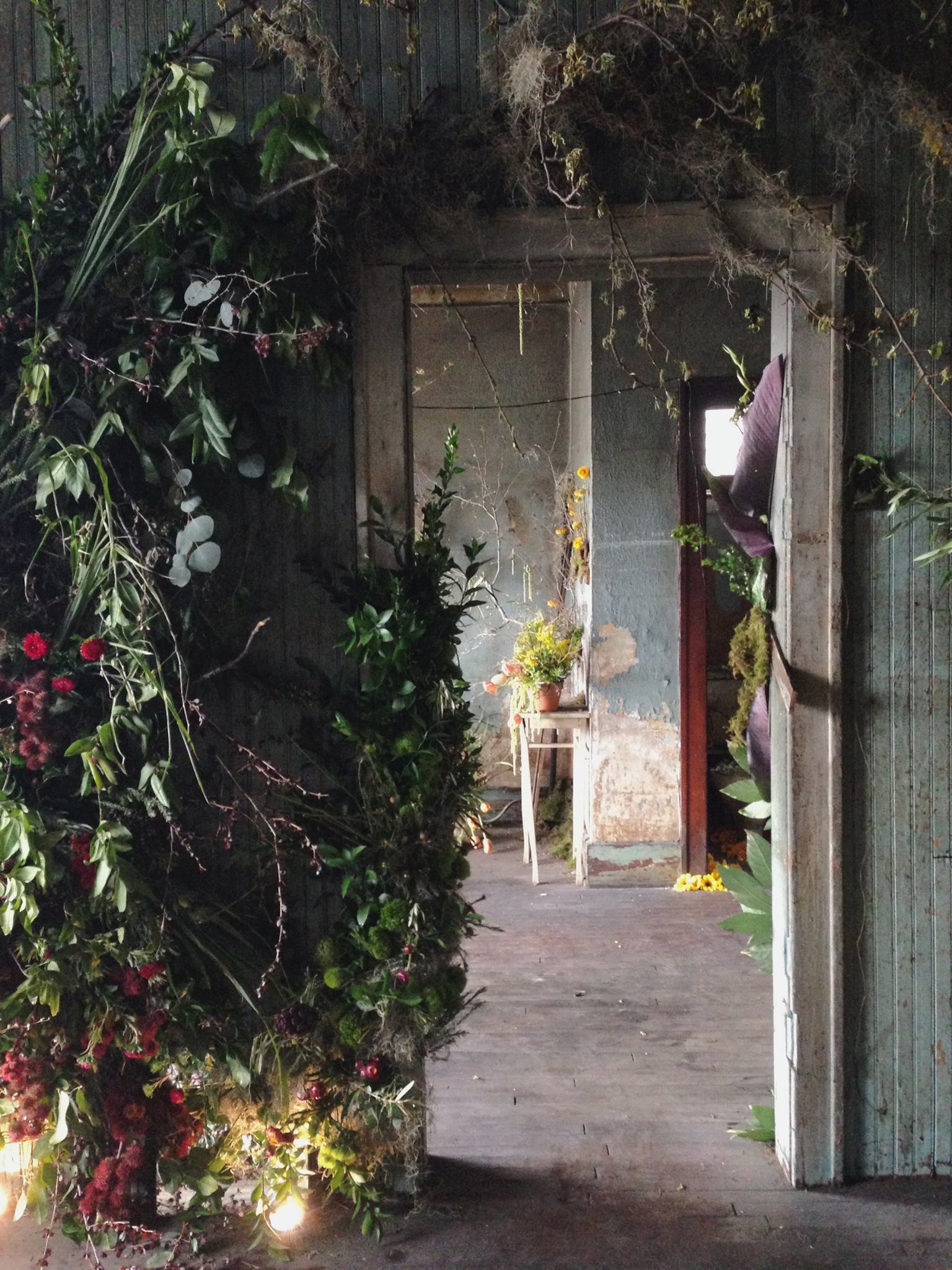
The hollow, gray rooms were brought back to life with beautiful blossoms of color, and rich green leaves.
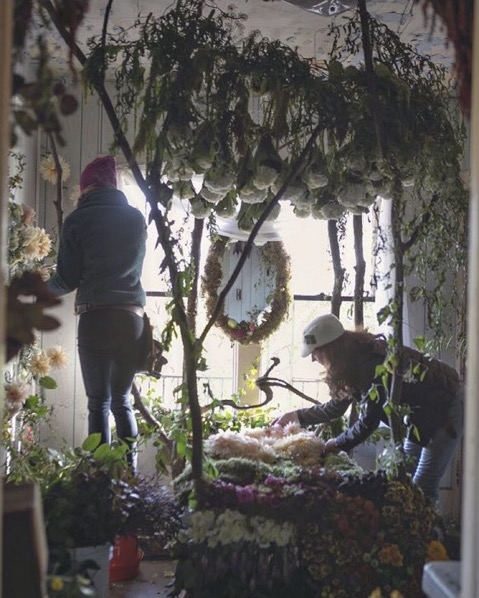
It took a lot of time and careful arrangement, but it transformed the house into a magical, fairytale-like setting!
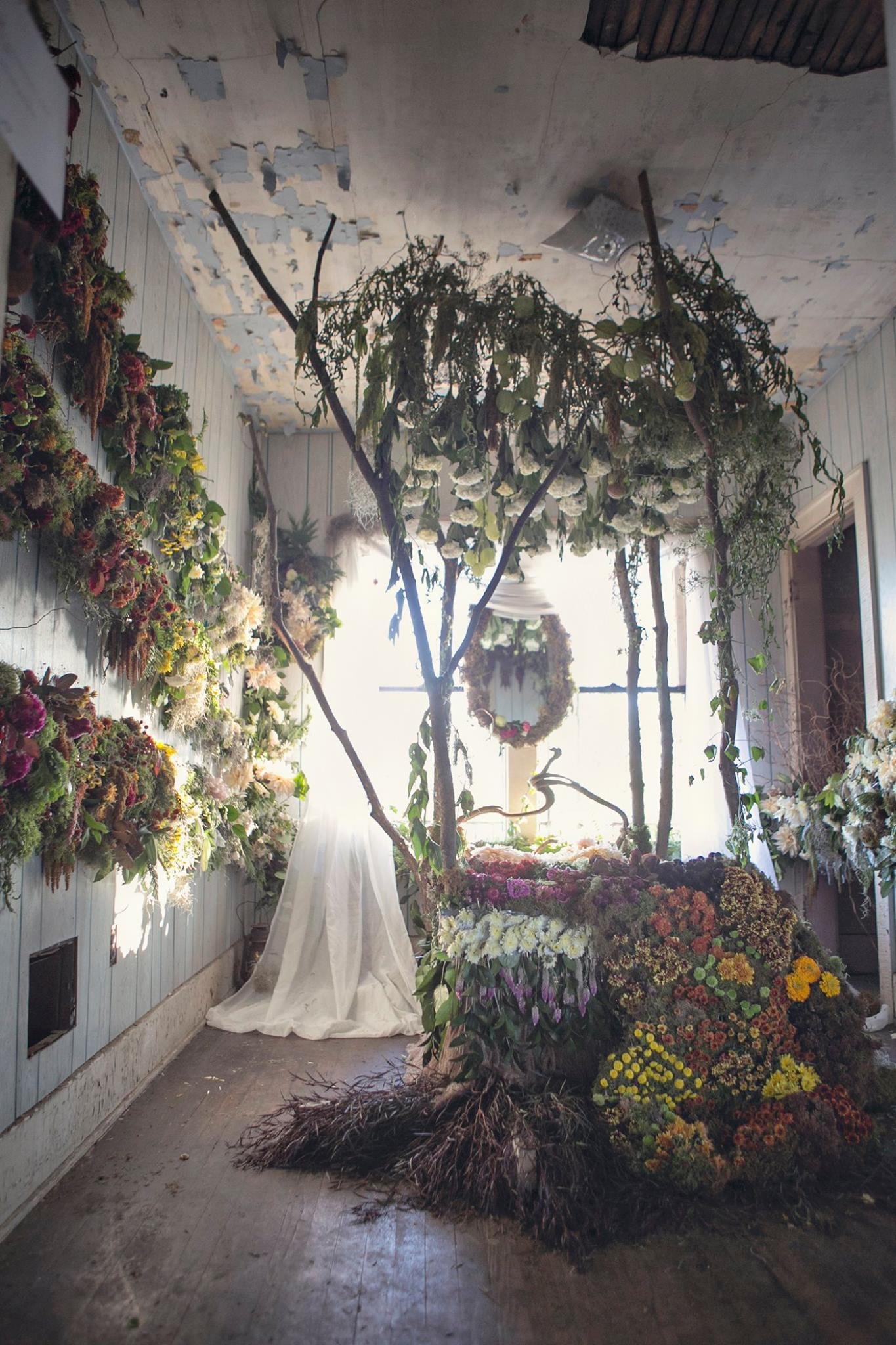
Each room was filled with hundreds of flowers on the floors, walls, and ceilings, and visitors were invited to explore.
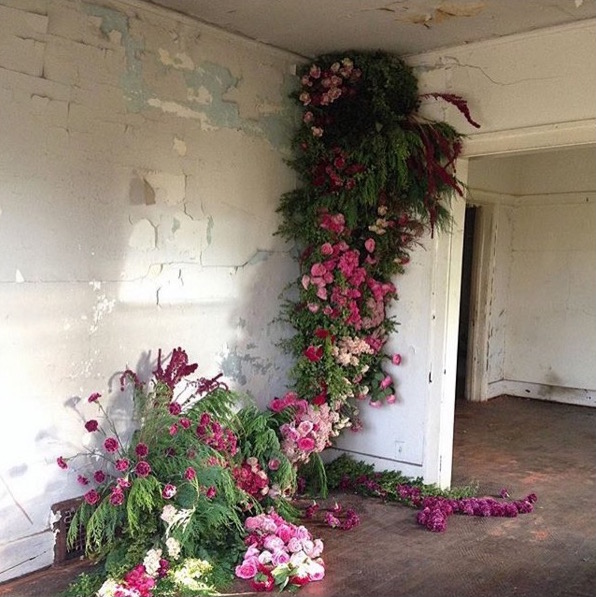
Some of the installations mimicked natural growth, as if the house were being reclaimed by nature.
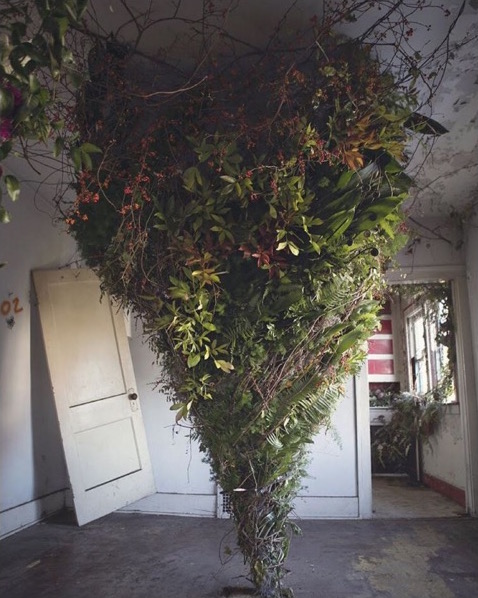
And some of them got pretty wild and surreal, like this flower tornado!
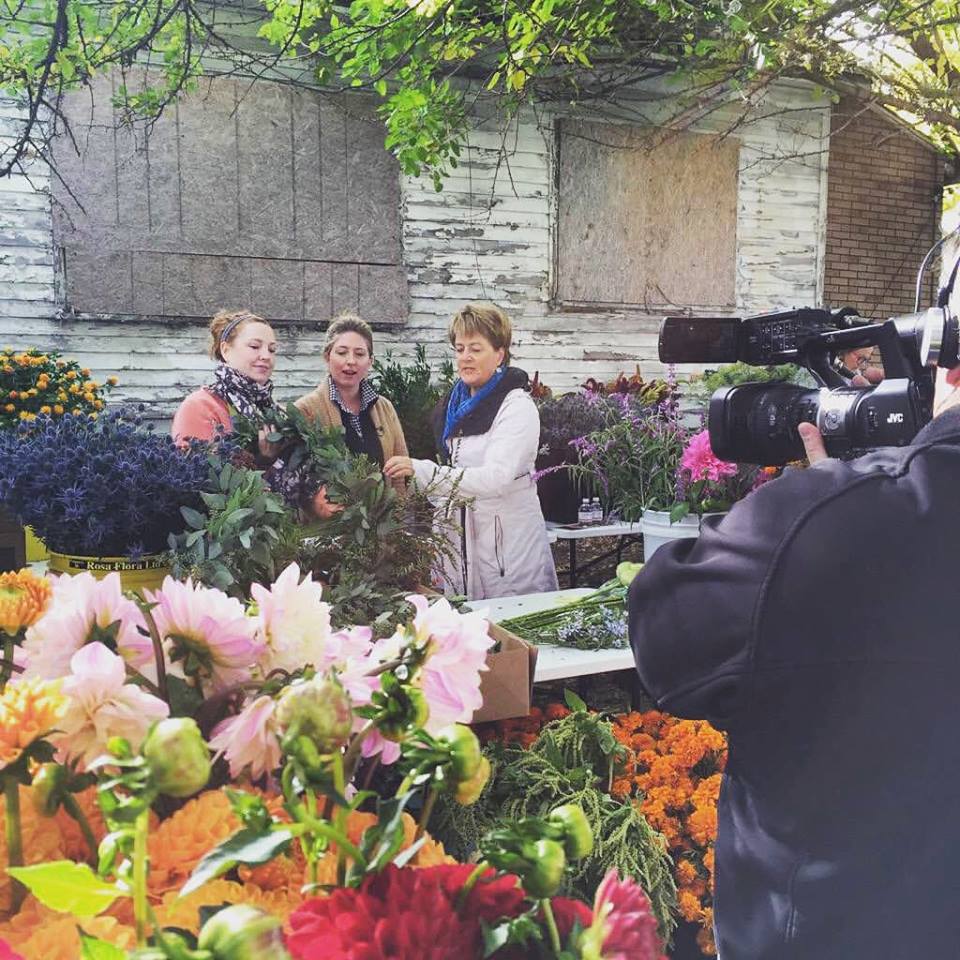
The weekend, though, was a huge success, and showed that just because something looks drab doesn't mean it can't be made beautiful again.
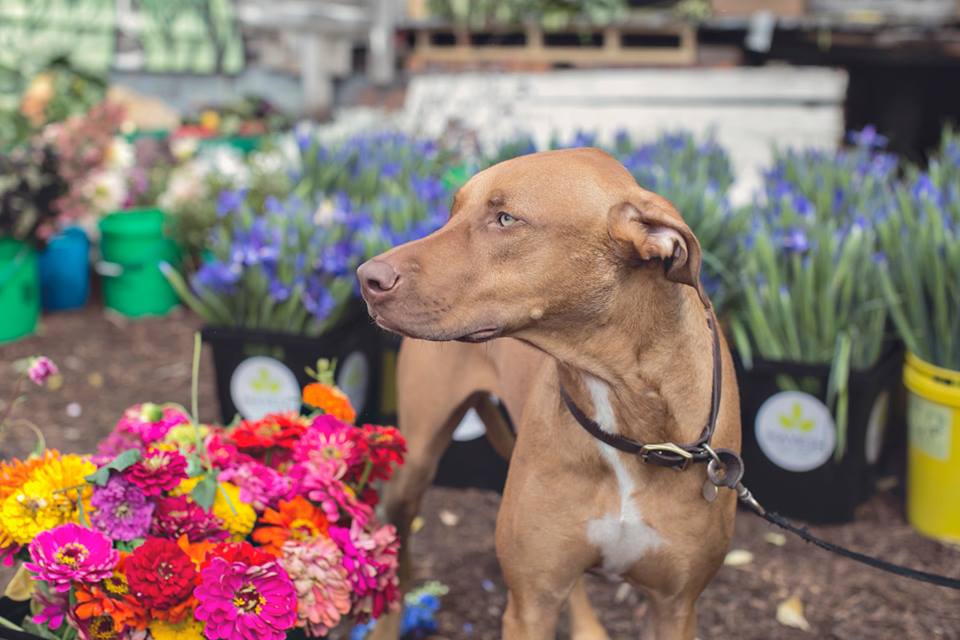
And it seemed that humans weren't the only ones who enjoyed themselves amid all those flowers!
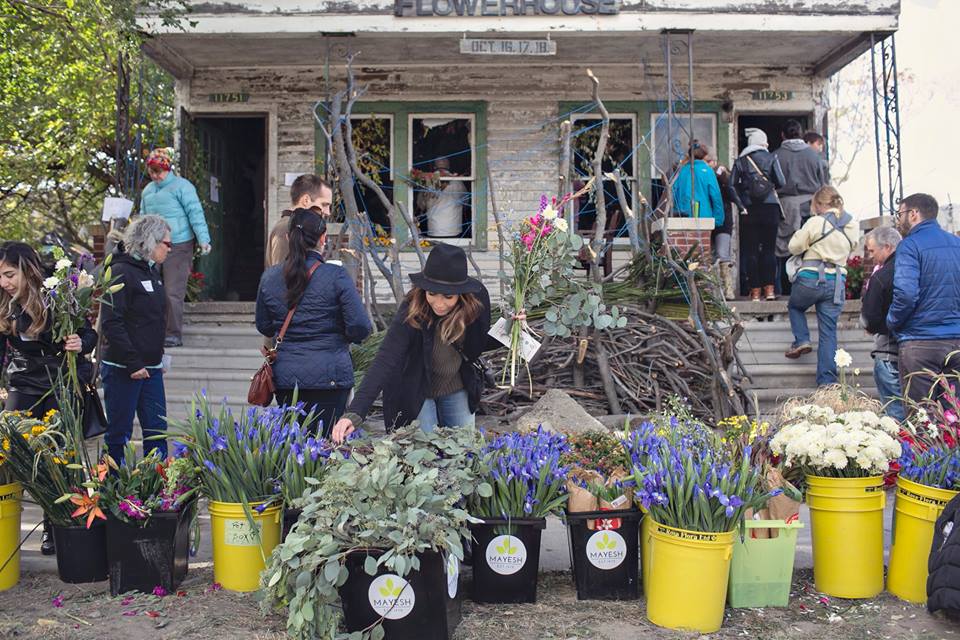
The installation only a lasted a weekend, but Flower House still lives — in a way.
The team behind it has dismantled the floral arrangements and repurposed what they could, and the house is schedule for demolition.
The property will be being used as a sustainable flower farm, new buildings will serve as a creative and design center for project creator Lisa Waud's business, Pot & Box.
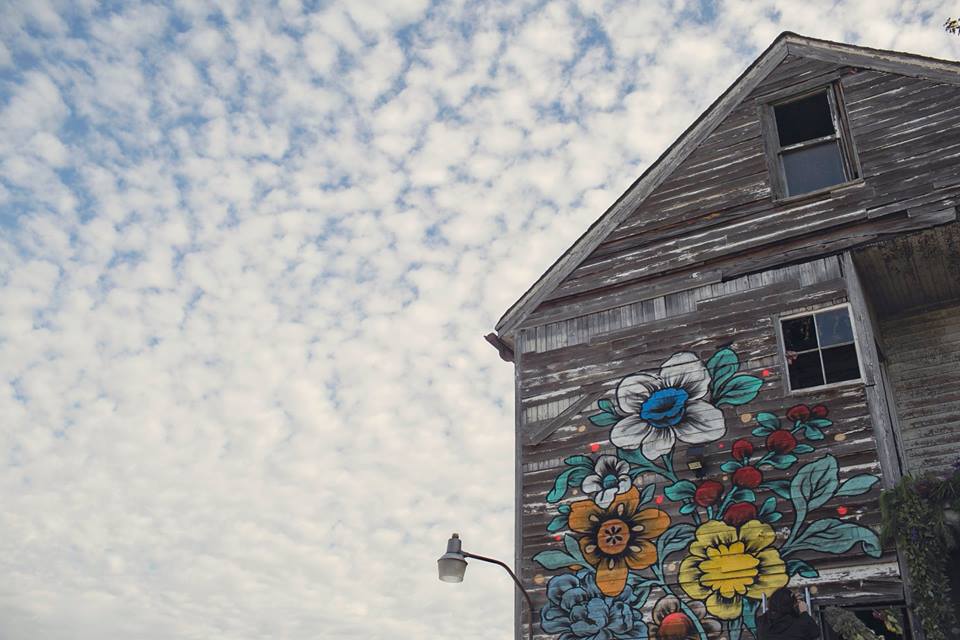
Even though the explosion of flowers, and soon the house, will be gone, Flower House will continue to be a glimmer of hope.
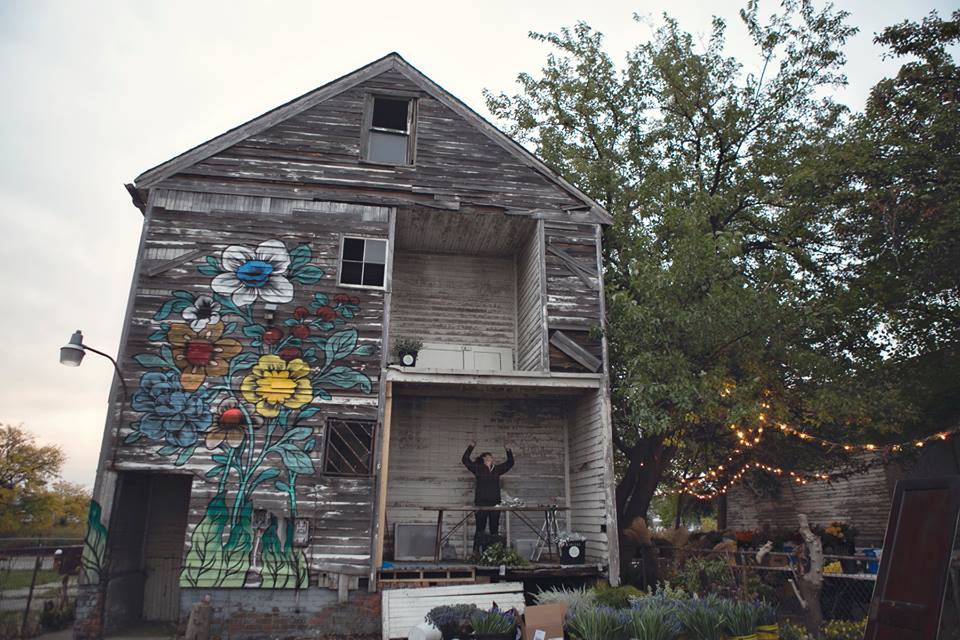
And although the house will no longer stand, its materials will be recycled and repurposed, and the property turned into a beautiful farm.
They hope that this project will inspire other people to take back land and buildings from the urban blight and turn the neighborhoods into something beautiful.



